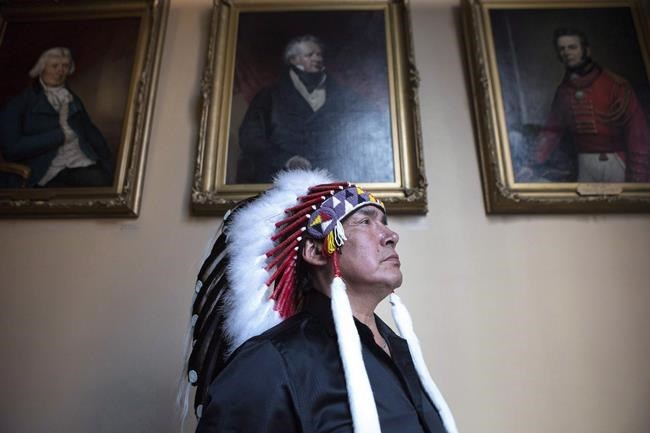TORONTO — Leaders from a Northern Ontario First Nation urged the federal and Ontario governments to commit to building and funding a mercury treatment centre in their community ahead of a meeting with them Wednesday.
Mercury contamination has plagued the English-Wabigoon River system in northwestern Ontario for half a century, since a paper mill in Dryden, Ont., dumped 9,000 kilograms of the substance into the river systems in the 1960s.
Researchers have reported that more than 90 per cent of the people in the nearby Grassy Narrows and Wabaseemoong First Nation show signs of mercury poisoning.
Grassy Narrows Chief Simon Fobister, who suffers from mercury poisoning himself, is frustrated that there hasn't been a firm commitment to the treatment centre itself, saying his years-long efforts to push for one feel like a dog chasing its tail.
"I can't fathom how Canada dismisses this whole man-made disaster that we're suffering from," he said Tuesday. "We're being poisoned every day. Every day. I think it's time that Canada and Ontario be serious about this."
Grassy Narrows leaders are set to meet in Toronto on Wednesday with Ontario Indigenous Relations Minister David Zimmer and federal Indigenous Services Minister Jane Philpott, who has so far committed to a feasibility study for a mercury treatment centre.
Zimmer said Tuesday that Ottawa would make a commitment to fund the centre at Wednesday's meeting, but his office later said he misspoke and had been referring to the feasibility study.
Philpott said she is hoping to hear from the community what their specific needs are in a centre, but the federal government will "support some appropriate facility once we have more information."
"Are they looking at primarily an outpatient facility? Are they looking at specialty areas? Are they looking at, you know, in-patient facilities? What exactly are the needs?" she said in Ottawa.
Premier Kathleen Wynne told The Canadian Press from China, where she is on a trade mission, that a mercury disability board will have to help determine next steps and noted the province has earmarked $85 million to remediate the mercury contamination.
A consulting firm that has been working with Grassy Narrows has estimated that a treatment centre could be built for $4.5 million.
Grassy Narrows councillor Alana Pahpasay said many people sick and dying from mercury poisoning have left to live in nursing homes in Kenora, Ont., which cuts them off from the community.
"It is hard for people and family to go visit them," she said. "Even though it's an hour away a lot of people don't have that transportation to go visit their family or the resources to see them as much as they should. If we did have a home within the community that would give them the family time and the ability to be with their family when they're that close to leaving."
Fobister has spent time at a treatment centre in Japan — the world authority on Minamata disease caused by mercury contamination — saying he has pains in his hands and feet, sometimes to the point where he can barely walk. Symptoms of mercury poisoning include impaired peripheral vision, muscle weakness, impaired speech, hearing and cognitive function and numbness or stinging pain in the extremities and mouth.
Ontario NDP Leader Andrea Horwath said the province should "step up to the plate."
"If they can take care of it in Japan we should be able to take care of it here," she said.
Allison Jones, The Canadian Press


